Do you love the taste of coffee but would like to do without the jitters? Or are you looking for a more regional and healthier alternative to your daily cup of coffee? Would you like to avoid caffeine during pregnancy?
Whatever your motivation, there are plenty of good reasons for lovers of a good cup of coffee to broaden their horizons and try a new kind of indulgence.
We show you the seven most popular coffee alternatives for an enjoyable life without caffeine.
Coffee alternative without caffeine - what does that actually mean?
The term coffee alternative refers to drinks that are drunk instead of coffee. A distinction is made between caffeinated and caffeine-free alternatives. Coffee alternatives with caffeine include, for example, green and black tea, energy drinks and mate tea. In this blog post, however, we will limit ourselves to caffeine-free coffee alternatives, which taste closest to coffee and are prepared in a similar way.
The ecological benefits of decaffeinated coffee substitutes
More and more consumers are giving up the consumption of coffee beans for health reasons. However, there are also strong ecological reasons to look into decaffeinated coffee alternatives.
Probably the most important is sustainability: the coffee beans for your daily cup have to be transported from countries such as Brazil, Vietnam, Colombia and Indonesia, which means high fuel consumption and large amounts of CO2 emissions. (74.9g CO2/cup to be exact) with it. For this reason, we do not include decaffeinated coffee in this overview, as it does not differ from classic coffee except for the absence of the substance "caffeine" (in fact, the balance here looks even worse due to the energy required for decaffeination).
Furthermore, pesticides are often used in conventional coffee cultivation, which is another problem. Enormous quantities of water are also required for the cultivation, cleaning and processing of coffee. And often in regions that already have little water. All good reasons to take a closer look at regional coffee substitutes and see whether there are regional and more environmentally friendly options for your own coffee consumption.
1. lupin coffee - the closest thing to coffee
Lupin coffee has become increasingly popular in recent years due to its fine roasted aromas and light sweetness. This is probably also due to the fact that it can be prepared like conventional coffee, allowing you to maintain your daily coffee brewing ritual without coffee and with 0% caffeine content. It is also possible to obtain different flavor profiles with this coffee substitute, just like with conventional coffee, by using different roasts.
For example dark roasted lupine pronounced roasted aromas, whereas lighter roasts are noticeably sweeter and nuttier. Lupin coffee also has a number of positive properties for our body. Find out exactly what these are in this article.

2. grain and malt coffee - the rustic alternative to coffee without caffeine
Grain coffee is made from rye, barley or spelt and is characterized by its intense, nutty and slightly bitter taste. This coffee alternative has been around for a very long time and has quickly established itself as an inexpensive and regional coffee alternative to conventional coffee. Grain coffee is also said to have a digestive effect and is often drunk by people with stomach problems due to its good digestibility.
Malt coffee is also a good caffeine-free alternative to conventional coffee. It is also affectionately known as "Muckefuck" - which is derived from the French expression "Mocca faux" (fake coffee). Malt coffee is one of the most popular coffee substitutes in Germany.
3. chicory coffee - sweet and bitter at the same time
Rich in minerals, free from caffeine and gluten - chicory coffee is a very good substitute for coffee beans. This unique drink is made from the roots of the chicory plant and contains minerals such as calcium, potassium, magnesium, phosphorus and sodium as well as trace elements such as iron, copper and manganese.
Chicory is a very good choice for anyone who wants to reduce their caffeine intake and still enjoy a cup of steaming hot "coffee" on cold days. Note, however, that this alternative contains some bitter substances, which can take some getting used to at first.
4. caffeine-free coffee alternative made from dandelion root

It may sound strange at first to use dandelion root as a coffee substitute, but this natural drink has many advantages over regular coffee. Not only is it said to stimulate digestion, but it is also regionally available. You probably wouldn't even have to leave your garden to make this alternative yourself.
However, the production is time-consuming and the taste is quite bitter but also nutty and slightly sweet. This coffee substitute is expensive compared to other coffee alternatives due to the labor-intensive extraction process. It is prepared in the same way as instant coffee.
5. acorn coffee - the regional classic
For generations before coffee beans were widely available, people have been using regional ingredients to prepare coffee-like drinks. At the top of the list was the acorn as a basic product. The "acorn coffee" made from it was already enjoyed by our great-grandparents and their ancestors.
However, this coffee substitute can be quite bitter if it is not properly processed and debittered. This very important step in the preparation of acorn coffee takes between one and three days, depending on the recipe used for processing. A coffee alternative that must have a permanent place on this list for nostalgic reasons alone.
6. chaga coffee - the somewhat different coffee substitute
The chaga mushroom, also known as the slate shaker mushroom, has a reputation for having immune-boosting and anti-inflammatory properties and has been used in traditional medicine in many countries for centuries. The mushroom is usually sold as a fine powder that is prepared like instant coffee: simply pour hot water over it, stir and enjoy. Fans of this special coffee substitute often enjoy the woody, slightly earthy taste with a dash of milk.
7. other caffeine-free coffee alternatives
As you can see, there are now several decaffeinated coffee alternatives on the market that come more or less close to coffee in terms of taste and preparation. We have selected the seven that we think do the job best. Other options you can look at are beechnuts, sweet chestnuts and figs. However, we cannot accept any liability for the taste of these natural coffee substitutes ;)
Conclusion
Decaffeinated coffee alternatives have recently gained more and more attention due to their numerous health and environmental benefits.
Apart from that, some alternatives, such as lupin and chicory coffee, come surprisingly close to the taste of coffee beans. Lupin coffee also offers the possibility of maintaining the morning coffee ritual (grinding and freshly brewing the beans) even without conventional coffee. In addition, the coffee alternatives mentioned are much better for the environment, as they do not require enormous amounts of water to be grown, imported from the other side of the world and have to be cleaned and processed at great expense. All reasons to give these up-and-coming coffee alternatives a chance and replace coffee beans with another drink.



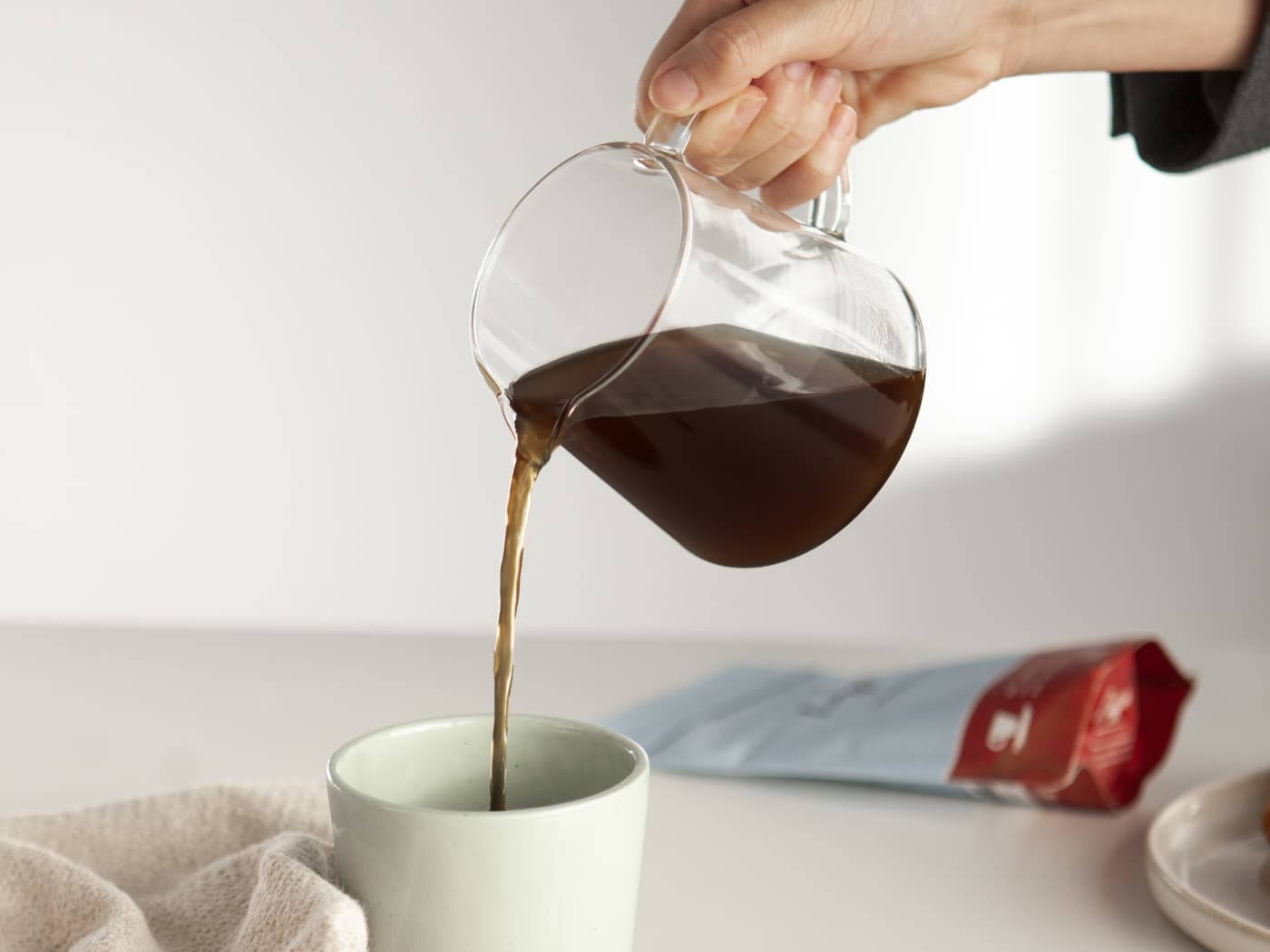


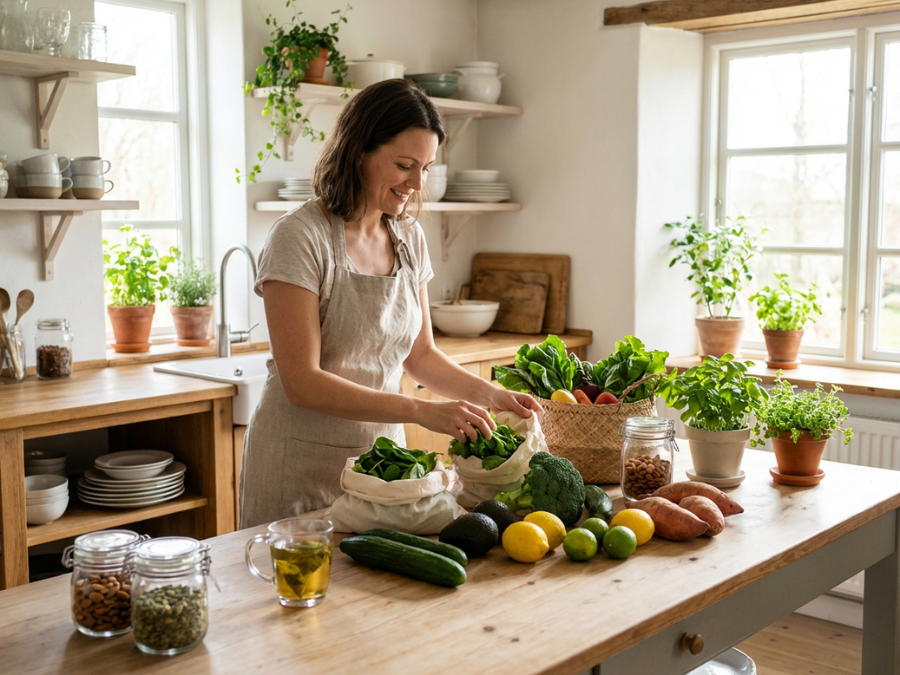
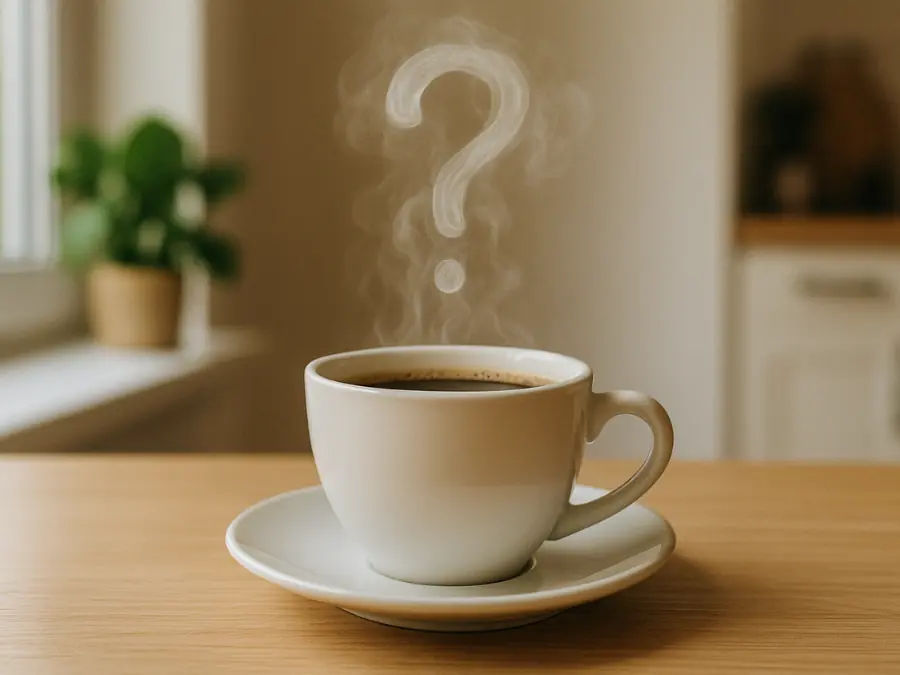

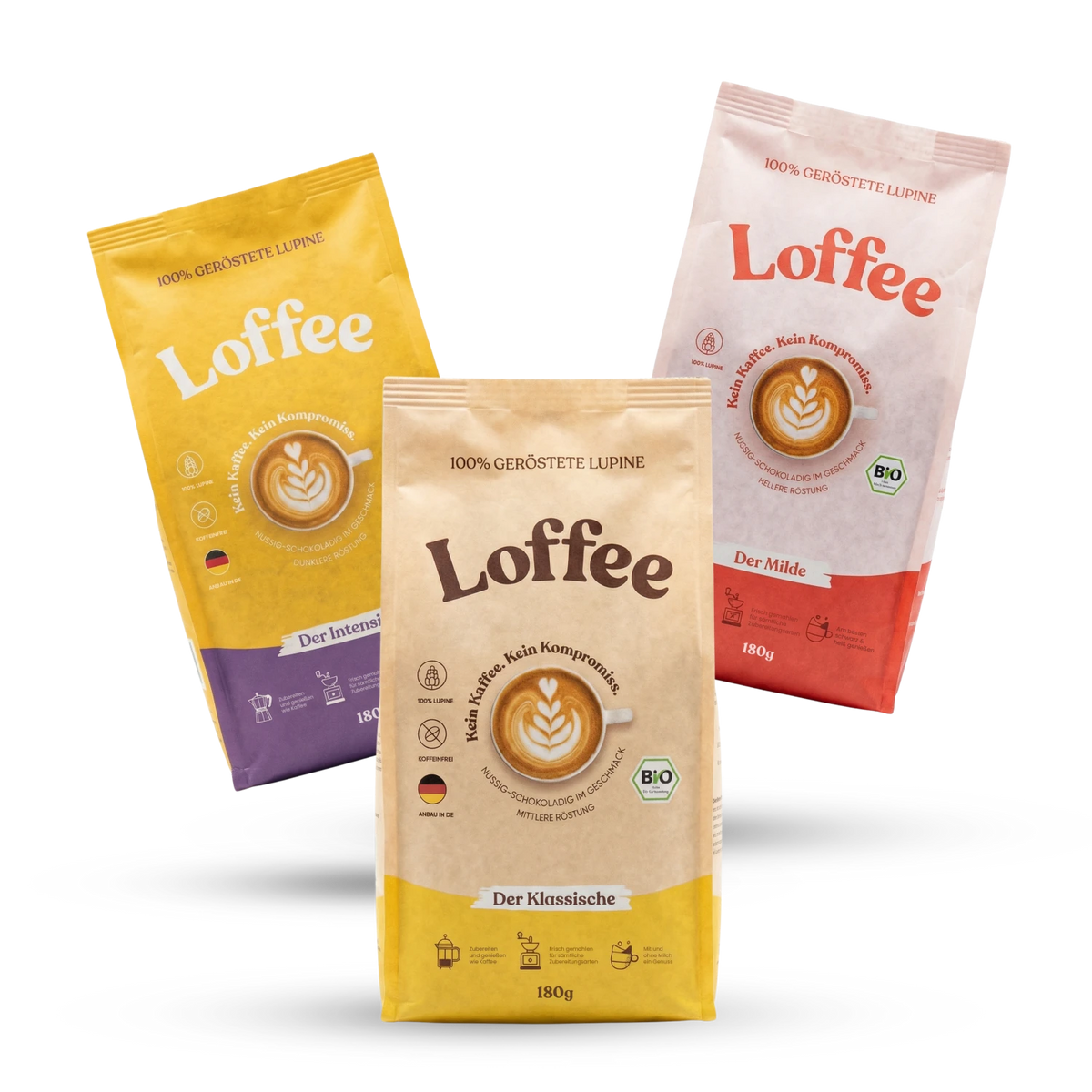
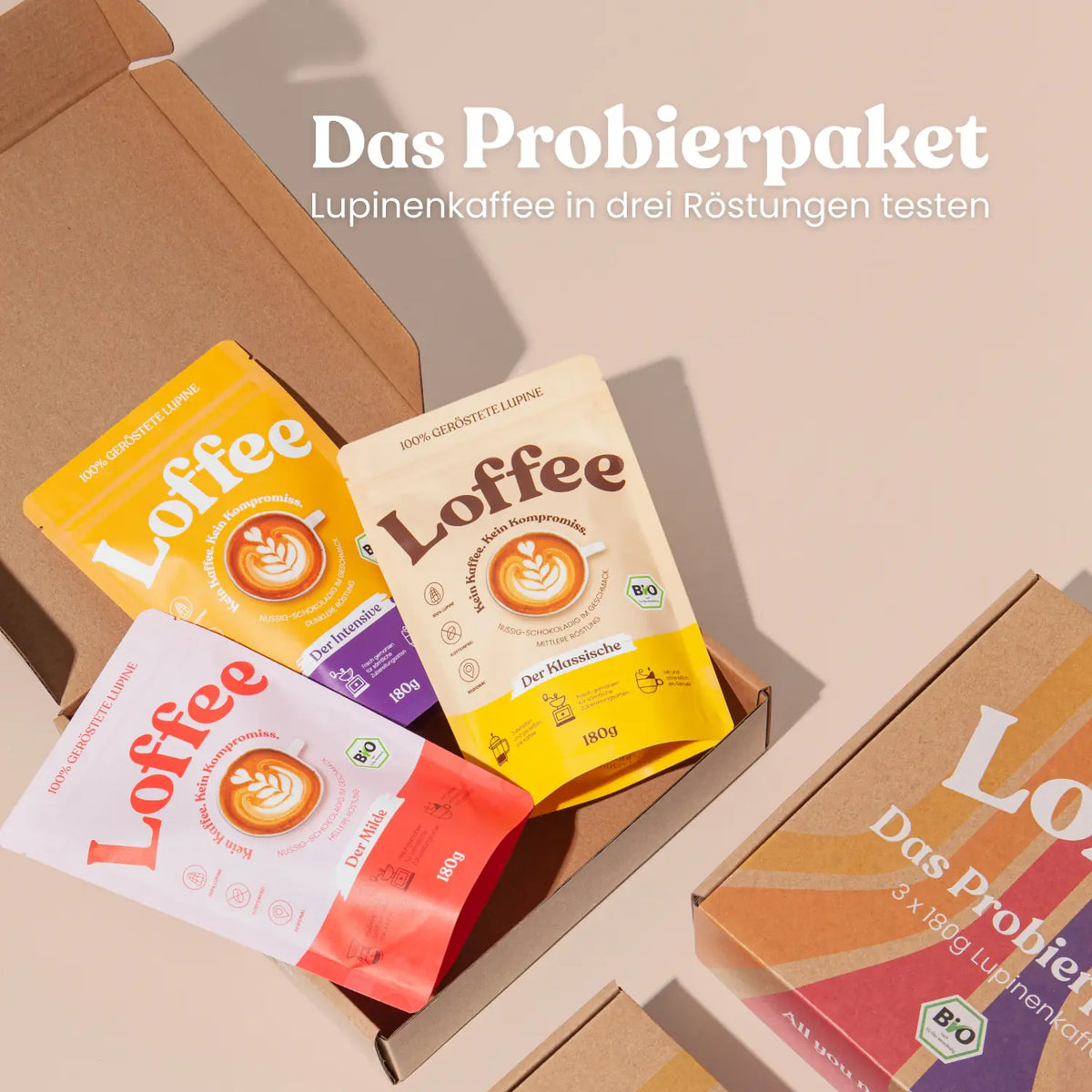
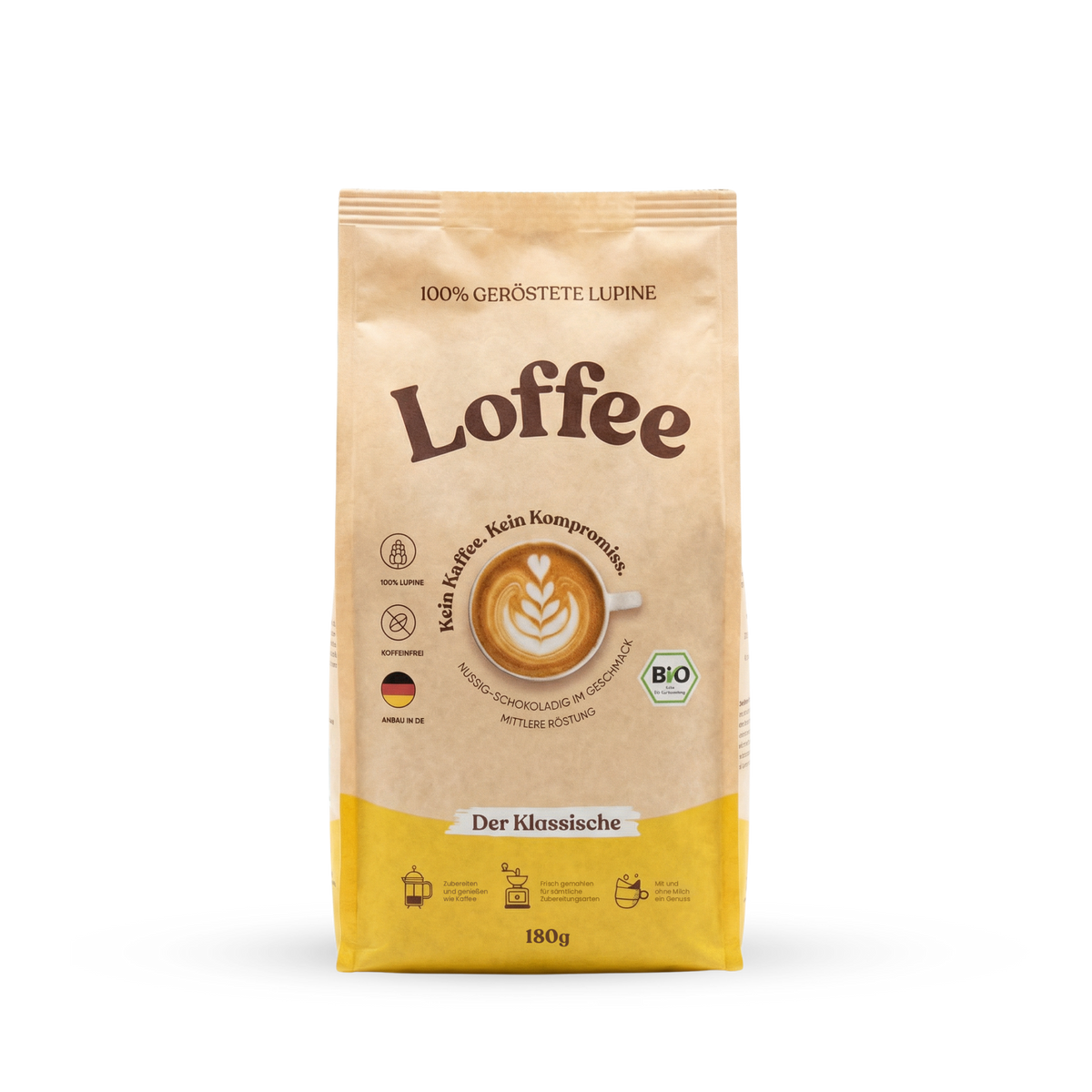

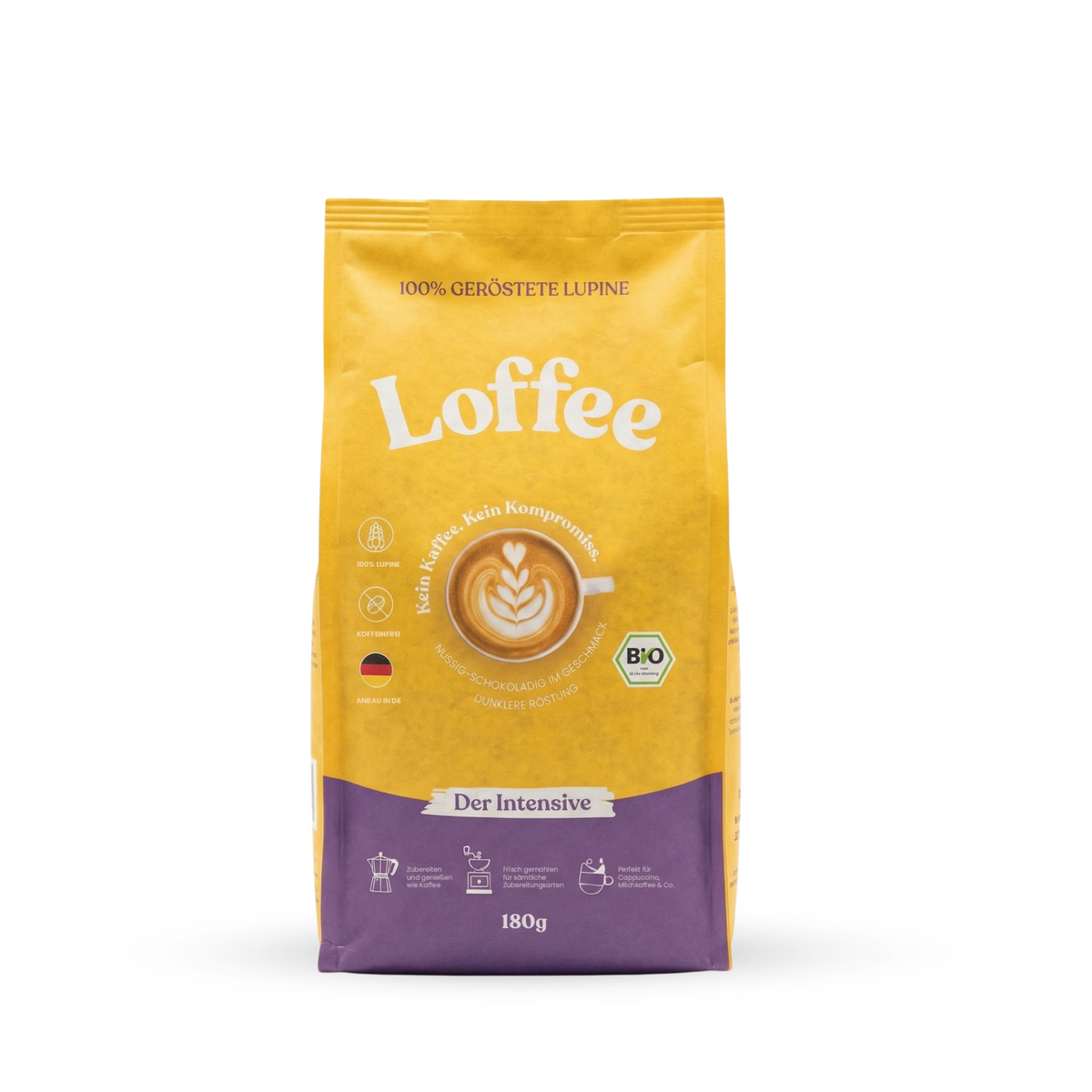
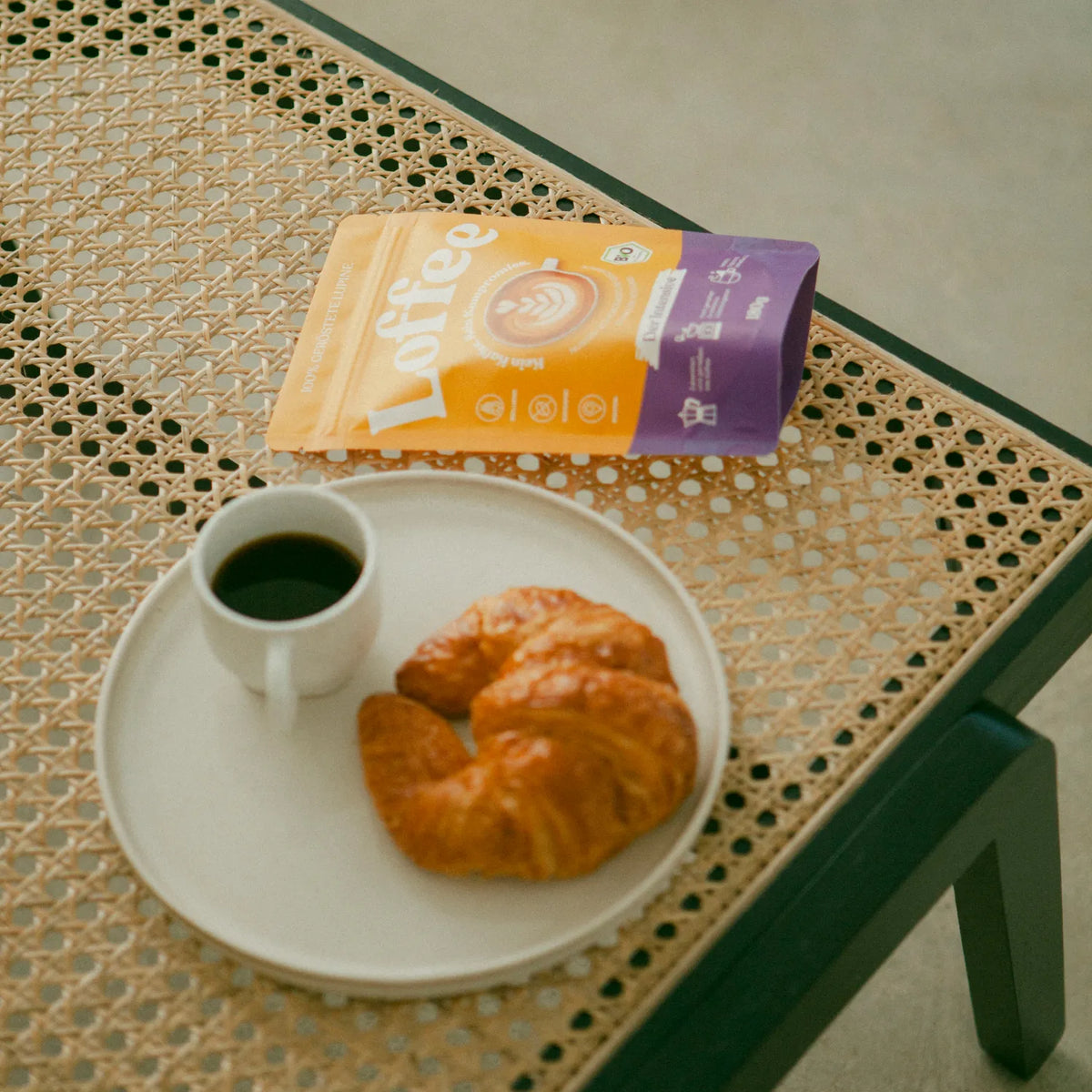
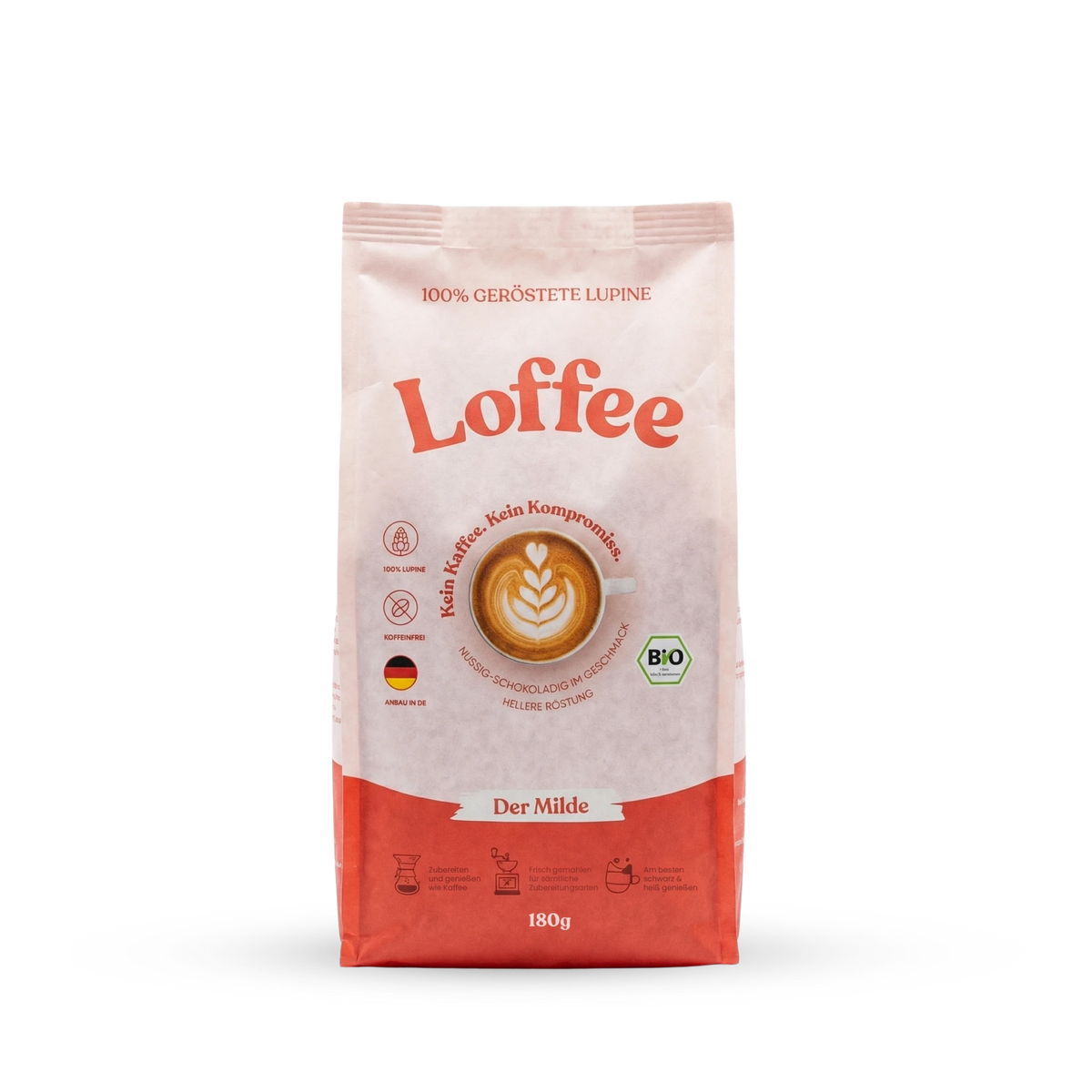


1 Comment
Petra Zimmermann
Danke für all die wertvollen Informationen!
Nun habe ich einen guten Plan !
Danke für all die wertvollen Informationen!
Nun habe ich einen guten Plan !